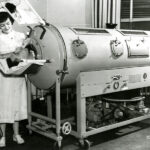
I am in the midst of teaching a class on using technology in education with some really terrific and interesting graduate students.
Last night, we began our exploration of Computational Thinking and Computer Science. Most of the students reported themselves as novices in both areas, and so I planned to do an introduction using one of my favorite platforms, TurtleBlocks.
TurtleBlocks in a successor to LOGO, one of the first coding tools designed for children. It allows users to create ...
Read More








